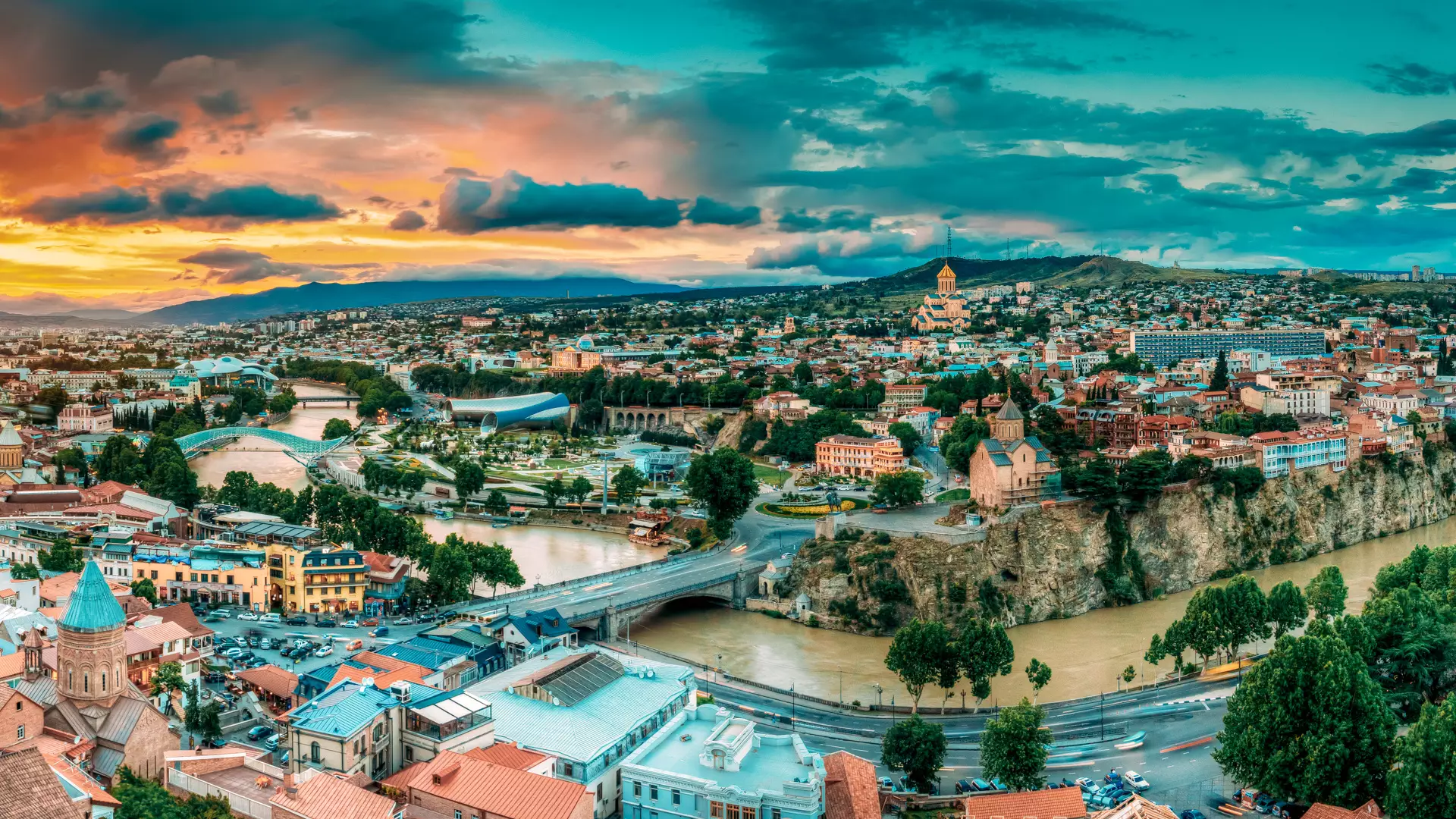Georgia on the Great Silk Road
The Great Silk Road is a river of culture, science, and technology
Along its 12,000-kilometre network, the Silk Road carried information about new religious and philosophical ideas.
Buddhism, Confucianism, Christianity, and Zoroastrianism made their way to Europe via this route. Following this, Christian pilgrims from the West were sent to Asia to convert the locals.
The spread of such salient information through the Silk Road and the fusion of different cultures led to the emergence of new flows in philosophy, various fields of art, and literature.
The Georgian capital of Tbilisi served as a trade hub along the Silk Road, allowing it to absorb ancient Eastern culture and Western thoughts over many centuries. The ideas were thrown into the melting pot of Tbilisi, reached noble houses, then marketplaces and then spread out to other corners of the country.
At first, in the 2nd century BCE, when the Roman Empire established trade relations with China, the Silk Road passed through the caravan route of Persia. Then, when relations between Rome and Iran became extremely strained, the caravan route was no longer safe and reliable. Consequently, merchants moved to Georgia, to relatively difficult terrain.
Scholarly accounts from the 4th and 1st centuries BCE, recorded by Greek historians, suggest that Georgia served as both a stop along the Silk Road and as a major node on the north-south trade route. Georgia was a pivotal location for global trade.
Amidst ongoing geopolitical upheaval, the Georgian section of the Silk Road gained momentum and still maintains its relevance in the twenty-first century.
Whoever owned Tbilisi, owned the gate of the Caucasus
Georgia stood out as a notable nation along the Great Silk Road. Whoever controlled Tbilisi, controlled the entire Caucasus region and this vital section of the Great Silk Road. This meant that Georgia was a target for numerous empires over many centuries.
Silk Road - the highway of ambitious military campaigns
In addition to trade-economic relations and dialogue between cultures, the Silk Road also had a military-strategic purpose. The Georgian section of this road was not an exception.
The Romans built so-called Pompeus bridge across the Mtkvari river in Mtskheta, Georgia's ancient capital and site where a piece of Christ's robe is preserved. The bridge only comes to the surface and becomes visible when the water level drops to a critically low level.
Mtskheta has been a strategic center since ancient times and the main roads of the Caucasus pass through here. Among them is a path from the Dariali valley to the southern border of Georgia, and another path is the route from the Black Sea to the Caspian Sea.
The Georgian section of the Great Silk Road today
In the 90s, after the Soviet Union collapsed and Georgia was taking the first steps toward independence, it became necessary to establish the country’s importance and function.
The European Union launched a program, called the Transport Corridor at the time, which connected Europe, the South Caucasus, and Central Asia. TRACECA (Transport Corridor Europe-Caucasus-Asia) is currently working on the infrastructural and logistical development of the most important transit corridor. It also actively cooperates with the European Union and Asian countries to synchronize legislation and regulations to make it an even more convenient and profitable route for international carriers.
Positioned along the Silk Road, Georgia has played a pivotal role in world events. Europe sought years for alternatives to Russian energy resources. The Baku-Tbilisi-Ceyhan oil pipeline, which supplies the world markets with Caspian oil, and the southern gas corridor, which is of vital importance for European countries in the new geopolitical situation, both pass through Georgia.
Another promising project is the development of a deep-water port in Anaklia, which, once complete, will be the only such facility in the eastern Black Sea and will be able to accommodate vessels with as many as 10,000 TEUs.
Over the past few years, Georgia has seen the completion of the Baku-Tbilisi-Kars railway, an important railway project along the Great Silk Road. This road not only links the Azerbaijani capital of Baku to the Georgian capital of Tbilisi but also the Turkish city of Kars. There is now a direct route for a cargo train from China to reach London, the farthest western point in Europe.
On December 13th, 2015, the first Chinese cargo train carrying electrical equipment set out on this railway, also known as the "Silk Railway," and made it safely to its destination. The leaders of Georgia, Azerbaijan, and Turkey came together on October 30th, 2017, to officially open the railway.
Georgia continues to play a pivotal role in the region's economy, energy security, and the realization of global transit highways, just as it has throughout history.
Cookie Policy

